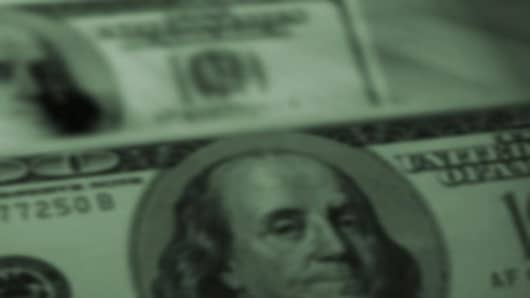Companies in the Standard & Poor's 500 index bought a record $589 billion of their own stock in 2007 as they looked for ways to spend their cash hoards, S&P said Monday.
But S&P expects the pace of buybacks to slow this year because of concerns about liquidity and the economy. Nonetheless, they are expected to remain at historically high rates because of pressure from shareholders and the mountains of cash companies have to spend.
While some corporations have borrowed money to finance buybacks, for the most part they are paying with the nearly $3 trillion they have earned in the past five years.
"These companies are making money," said Howard Silverblatt, S&P's senior index analyst. "This is the payback for them."
S&P 500 industrial companies -- a list that excludes banks -- still have $616 billion in cash. Silverblatt said companies will likely buy back at least $100 billion in stock each quarter this year, meaning the rate of buybacks will be slower than 2007, comparable to 2006, and much higher than any other year.
Companies are opting for stock buybacks over dividends as the preferred means of channeling cash to shareholders. Buybacks accelerated more than 36 percent in 2007, while dividends climbed 10 percent to $246 billion -- less than half the cash spent on buybacks.
Buybacks are more tempting for companies for two reasons, Silverblatt said. Companies typically announce they plan to buy back a certain number of shares, and once that number is exhausted the program is over. Meanwhile, a dividend is assumed to be permanent and shareholders will be upset if the dividend is cut.
Also, once a company pays a dividend, shareholders will cash their checks and that cash is lost. Conversely, when companies buy back stock they do not necessarily retire it. Frequently, they keep the shares in their treasury, where they can still use it.
Silverblatt said that probably means some of the companies that have been buying back their own stock plan to use the shares to buy other companies, using stock as currency.
The repurchases were led by several "mega" buybacks. Ten companies -- ExxonMobil
, Microsoft , IBM
, General Electric , Hewlett-Packard
, Home Depot , AT&T
, Transocean , Pfizer
, and Cisco Systems -- repurchased $148 billion in stock.
Buybacks were slowest among financial companies because they are hoarding cash to protect themselves from turbulent markets, S&P said.
The information technology sector bought back the most stock. Silverblatt said this is because many companies in the sector have paid their employees with stock options. Once those options are exercised, the companies have to decide whether to buy back stock or allow the share count to expand.
Last year was the first time this decade companies spent more than their annual earnings on buying back stock. S&P 500 companies earned $587.23 billion last year.
Repurchasing stock takes a company's shares out of circulation, boosting the value of existing shares and fattening profits measured per-share.


